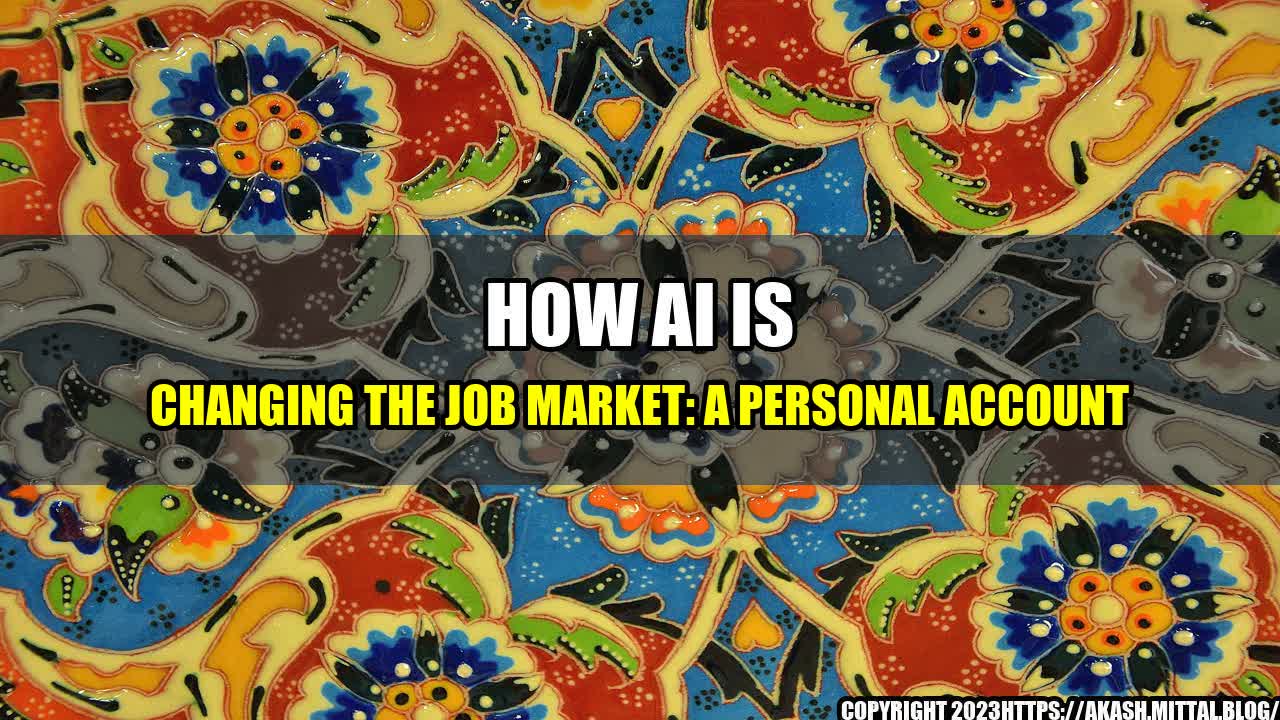It was just another day at work when I received an email from my CEO announcing the implementation of an AI-powered software that would automate some of our daily tasks. At first, I was excited to work with this new technology and see how it would enhance our productivity. But soon, I realized that this software could also threaten my job and the jobs of many of my colleagues.
The truth is that AI has already started to disrupt the job market, and the impact is only expected to grow in the coming years. According to a report by the World Economic Forum, by 2025, the use of AI could lead to the displacement of 85 million jobs worldwide, but it could also create 97 million new positions in emerging fields.
In my industry, customer service, AI-powered chatbots and voice assistants are becoming increasingly popular. These tools can handle basic inquiries and tasks, freeing up human agents to focus on more complex issues. A survey by Gartner found that by the end of 2021, 40% of customer service interactions will be handled by AI, up from 16% in 2018.
Similarly, in the healthcare industry, AI is being used to analyze medical data and assist in diagnosing and treating patients. A study by Frost & Sullivan estimates that the use of AI in healthcare could save $150 billion annually in the United States alone, by reducing hospital stays, improving patient outcomes, and decreasing costs.
- AI is already having a significant impact on the job market, and this trend is expected to continue.
- Some jobs will be automated, leading to job loss and displacement, while others will require new skills and training.
- It is important for individuals, businesses, and governments to prepare for this transformation and ensure a smooth transition towards a more AI-powered economy.
and Case Studies
As someone who works in customer service, I have seen first-hand how AI can enhance our efficiency and accuracy. However, I am also aware of the risks and challenges that come with this technology. For example, some customers may prefer to speak with a human representative and may be frustrated or disappointed by the limitations of AI-powered tools. Additionally, there is a concern that AI could perpetuate biases or discrimination if not properly programmed and monitored.
On the other hand, I have seen how AI can provide opportunities for career growth and development. For instance, some customer service agents have transitioned into AI-related roles, such as data analysts or AI programmers, which require new skills and knowledge. This demonstrates the importance of continuous learning and reskilling in an increasingly digital economy.
A case study that illustrates the transformative power of AI is the example of the online retailer Amazon. By using AI-powered algorithms, Amazon has been able to personalize the shopping experience for each customer, predict their preferences and needs, and improve their overall satisfaction. However, this has also led to concerns about the privacy and security of personal data, as well as the potential for monopolistic practices and unfair competition.
Practical Tips
- Stay informed about the latest trends and developments in your industry and how AI is being used.
- Invest in your education and skills, especially in areas related to AI, such as data analysis, machine learning, and programming.
- Develop your social and emotional intelligence, which are skills that AI cannot fully replicate or replace, and which are increasingly valued in the job market.
- Be open-minded and adaptive to change, and be willing to collaborate with AI and other technologies.

Curated by Team Akash.Mittal.Blog
Share on Twitter Share on LinkedIn